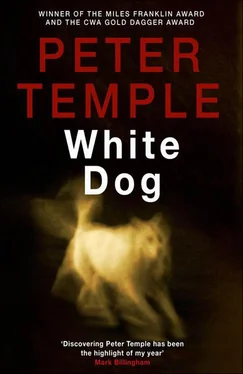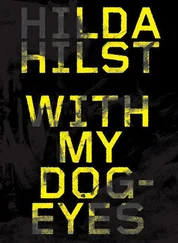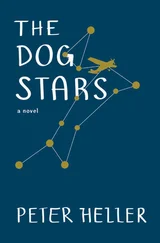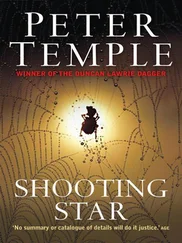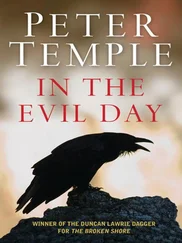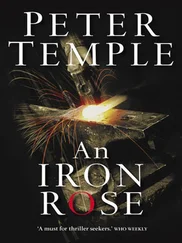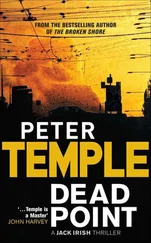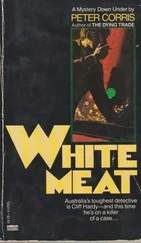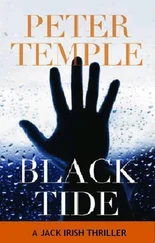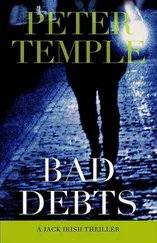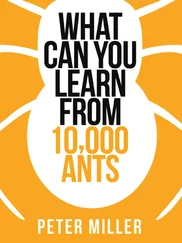Peter Temple - White Dog
Здесь есть возможность читать онлайн «Peter Temple - White Dog» весь текст электронной книги совершенно бесплатно (целиком полную версию без сокращений). В некоторых случаях можно слушать аудио, скачать через торрент в формате fb2 и присутствует краткое содержание. Жанр: Триллер, на английском языке. Описание произведения, (предисловие) а так же отзывы посетителей доступны на портале библиотеки ЛибКат.
- Название:White Dog
- Автор:
- Жанр:
- Год:неизвестен
- ISBN:нет данных
- Рейтинг книги:4 / 5. Голосов: 1
-
Избранное:Добавить в избранное
- Отзывы:
-
Ваша оценка:
- 80
- 1
- 2
- 3
- 4
- 5
White Dog: краткое содержание, описание и аннотация
Предлагаем к чтению аннотацию, описание, краткое содержание или предисловие (зависит от того, что написал сам автор книги «White Dog»). Если вы не нашли необходимую информацию о книге — напишите в комментариях, мы постараемся отыскать её.
White Dog — читать онлайн бесплатно полную книгу (весь текст) целиком
Ниже представлен текст книги, разбитый по страницам. Система сохранения места последней прочитанной страницы, позволяет с удобством читать онлайн бесплатно книгу «White Dog», без необходимости каждый раз заново искать на чём Вы остановились. Поставьте закладку, и сможете в любой момент перейти на страницу, на которой закончили чтение.
Интервал:
Закладка:
‘Having a key to Mickey’s place? How does that work?’
‘I had it, I never gave it back, he never asked, I forgot I had it. I told the police that. Now that may be fucking dumb but it’s not exactly the act of a guilty person. Telling the police about your key to the victim’s apartment.’
I didn’t comment. Guilty people had done stranger things. Time to go away and think of questions I should have asked. I finished the coffee.
At the door, she touched my arm. I turned. No direct childlike look now, her gaze averted, her shoulders lowered.
‘Jack,’ she said, ‘I’m not a great client, but thanks.’
I found myself awkward.
‘I’m trying to be tough,’ she said, still not looking at me. ‘Someone who can handle this kind of nightmare.’
Resist the urge to offer comfort. I had learned that the painful way. In my time, they didn’t give you that advice at law school. Or perhaps they did, and on that day I woke with a gully-trap mouth, rose to fall again, buried guilt in sleep, missed the tutorial.
‘I think you are that someone,’ I said. ‘In a word or two, what was Mickey’s charm?’
‘He was funny, clever. And a dangerous feel. I’d never met anyone like him. He sparked you.’
‘That’ll do,’ I said.
9
I drove back to Fitzroy in a mood not far from gloomy. Federation Square didn’t help. It had an innocent awfulness, like the results of allowing small children to play at cooking. In Brunswick Street, luck delivered to me a space not too far from what would soon be the fashionable street’s newest eatery. On opening day, anyway. New cafes, bars, bistros opened regularly — places to hang out and exchange hilarious one-liners with your friends while sitting on old sofas and 1950s chairs. And they closed. This had started in the 1980s. For a long time before that little changed in the long shabby street of clanging trams, dangerous pubs, ethnic clubs, marginal shops, murky pool cafes, the offices of minor trade unions.
Then young people began to appear. At first alone and shy as urban foxes, they grew in numbers, became bolder. Soon they were loitering in the laundromat, venturing into the pubs, daring to claim a table in the snooker dens. Places catering for their special needs — breakfast in mid-afternoon, for example — opened. Affiliation clusters developed, here dud musicians, here talentless artists, here the illiterate writers, here those who combined all these qualities in spades — the film people.
The old inhabitants, like many original owners, thought the newcomers were simpletons but harmless. So when the speculators arrived and offered to buy their once unsaleable properties, they hid their smiles, took the money and ran for a new brick-veneer in the west.
In the mid-1980s, on a spring Sunday morning, a Volvo stationwagon parked in Brunswick Street. A young couple got out. She was trim, blonded, tanned. He was already broadening in the midsection, sockless, short and hairy legs ending in boatshoes. From a restraining chair in the back seat, he unloaded a child, complaining, flailing. They took it into a cafe.
They were going to have brunch.
The old Brunswick Street was dead, Brunchwick Street born. There was no turning back.
I thought about these things sitting in my car watching a signwriter at work on the window of Morris’s two-down, two-up building. It had once been the premises of C. K. Dovey, printer of personal and business stationery, advertising material, invitations to occasions of all kinds, calling cards. People passing would see Ken standing at the cabinet, selecting each letter from its tray, placing it in the stick in his left hand, inserting spaces — en spaces, em spaces, line spaces. He put the metal down on his steel stone in a frame, a chase, cut decorative borders, mitred their corners, locked the assemblage up tight with quoins. Then he transferred it to the press bed and inked it with a roller.
On Ken Dovey’s window, the painter had outlined the word Enzio’s in a fat italic hand and was working on the E in gold paint.
I got out and crossed the street, made my way in the late-morning throng, young and youngish people mostly, modish, long-haired, hairless, the odd balding man with a small tuft sticking out of the back of his head like a vestige of tail, people in Melbourne black, people in Gold Coast white, people in saris, sarongs, the odd suit, the odd secondhand pink tracksuit, many naked midriffs, some not much wider than a grey-hound’s, some not much narrower than a 44-gallon drum but the colour of lard.
‘Going where I’m going?’ said a woman behind me.
‘In principle, I’m willing.’
She came up beside me, brushed against me, you could feel the solidness of her arm, the muscle, not an unpleasant feeling.
I didn’t have to look down to meet her eyes, slate eyes. She was letting her hair grow; it was almost army bootcamp height.
‘How’s business?’ I said.
Her name was Boz. I’d done the work when she gave up being a film grip to buy a two-truck inner-city removal business with a line in carting works of art. The seller was an apparently exhausted man ready for a long rest. When I tried to ensure that he didn’t start up a week later under another name and pinch the goodwill he claimed to be selling, he had to be wrestled to the ground and sat on.
‘Excellent,’ she said. She licked her lower lip, showing a viper of pink tongue. ‘I may have to get another truck.’
‘Wait a while,’ I said. ‘Till you see it’s all flow and no ebb.’
We walked. The oncomings seemed to part for us — well, for a six-feet-two woman, with a broken nose, in overalls.
‘Fussy bastard, this Enzio,’ she said. ‘We go to collect the gas stove he’s bought, it’s disgusting. It looks like it’s been in shearers’ quarters for fifty years, they fire up all eight burners and chuck on a dead sheep, turn it over at half-time in the footy. Just looking at the fucking thing makes you itch. Enzio makes me get the blankets and wrap it up like it’s a French antique.’ She shook her head. ‘Had to throw away the blankets. Good blankets.’
‘Well,’ I said, ‘he tells me it is a French antique. Chucked out in some refurbishment of the Melbourne Club.’
We entered the stove’s new home. Enzio, scowling, his expression of choice, was on a ladder, painting a wall. He was wearing tracksuit pants and a singlet and he had sprinkled paint on his thinly covered scalp, his stubbled face, the exposed hairy parts of his body, on his garments.
‘Jack, Boz,’ he said. He pronounced her name Boss.
‘Good colour,’ I said. ‘Ancient nicotine. When’s opening day?’
It couldn’t be soon enough for me. I’d had no home in Brunswick Street for months, not since Neil Willis, absentee owner, wedding-reception gouger, sold Meaker’s, my hangout of too many years, to some jewellery-hung wise boys looking for a place to run drug money through. They’d sacked the staff and accused Enzio, the cook, of stealing from the kitchen. It had taken some doing but I’d managed to wring the workers’ entitlements out of Willis, including Enzio’s superannuation, fourteen unpaid years of it. Meaker’s was now called Peccadillo. My hope was that when they nailed the new owners, it would be for some offence to which that term did not apply.
‘So?’ said Enzio to Boz. ‘Where my furniture?’
I could see that being able to look down at her for once had empowered him.
Boz gripped the stepladder with a big hand, gave it a little shake, an exploration. Enzio cried out. The balance of power had been redressed.
‘Waiting down the street, mate,’ she said. ‘You’re going to have to make room out front. Two spaces.’
‘I got a plan for that,’ said Enzio. ‘Carmel!’
Читать дальшеИнтервал:
Закладка:
Похожие книги на «White Dog»
Представляем Вашему вниманию похожие книги на «White Dog» списком для выбора. Мы отобрали схожую по названию и смыслу литературу в надежде предоставить читателям больше вариантов отыскать новые, интересные, ещё непрочитанные произведения.
Обсуждение, отзывы о книге «White Dog» и просто собственные мнения читателей. Оставьте ваши комментарии, напишите, что Вы думаете о произведении, его смысле или главных героях. Укажите что конкретно понравилось, а что нет, и почему Вы так считаете.
